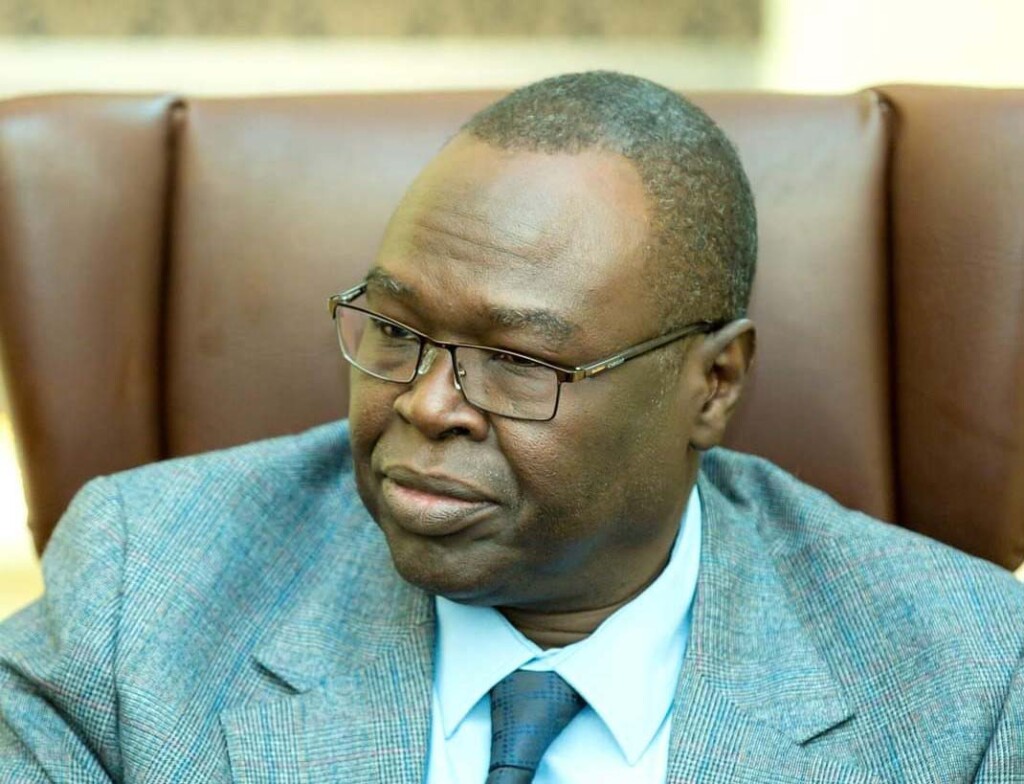Sudan Framework Agreement: Justice and military reform conferences may be postponed

Siddig Tawir (RD file photo)
KHARTOUM –
According to Siddig Tawer, leading member of the Socialist Arab Ba’ath Party and member of the Sovereignty Council during the government of PM Abdallah Hamdok, the current political process is “at a real impasse.” Several other politicians believe the conferences for discussing the remaining four issues will go ahead as planned.
He explained to Radio Dabanga that “there are reports that the dialogue conferences between the signatories of the Framework Agreement on (transitional) justice and on reform of the security and military institutions will be postponed until after the formation of a new transitional government.”
Tawer said he is convinced that there are no guarantees for the implementation of the Framework Agreement. “El Burhan has repeatedly threatened to overthrow any government that does not suit their whims,” he said.
“This accord exempted the putschists from the crime of the 2021 coup d’état, and I do not rule out secret understandings to skip the issue of accountability for the coup.”
More than 40 political parties and civil society groups separately signed a Framework Agreement with the military junta on December 5 last year, under auspices of the AU-IGAD-UNITAMS Trilateral Mechanism*. The driving force behind the civilian groups is the mainstream Forces for Freedom and Change, the FFC-Central Council.
The first conference, on the removal of empowerment**, which began on January 9, concluded in the Sudan capital last week. The politician described the conference as “selective” as “it did not accommodate dissenting voices.” He said that “the issue was not subject to sufficient discussion within the FFC-CC alliance, despite everyone agreeing on the possible risks,” and accused a certain group of hijacking the outcomes.
The Socialist Arab Ba’ath Party recently left the the FFC-CC, because most coalition parties signed the Framework Agreement, which the party believes “legitimises the October 2021 coup”.
Imminent conclusion
Last week, the spokesperson for the Sudanese Professionals Association and member of the Executive Bureau for the FFC-CC, El Riyeh El Sadig, told Radio Dabanga that the dialogue conferences on the remaining four issues (justice, security and military reform, the Juba Peace Agreement, and eastern Sudan) organised by the signatories to the Framework Agreement will be concluded within two weeks.
Shehab Ibrahim, spokesperson for the FFC-CC, told Radio Dabanga on Sunday that the four conferences will be launched at the end of this month, leading to the preparation of a final agreement with the military.
El Hadi Idris, President of the Sudan Revolutionary Front (SRF) rebel alliance that signed the JPA with the Sudanese government in October 2020 and member of the Sovereignty Council, said in a press conference after his return from Juba on Saturday, that the dialogue conference on the JPA will be held “before the end of the month.”
The conference will concentrate on enhancing the JPA and mobilising international and political support for it’s implementation, he said. In addition, the conference aims to “to complete the peace agreement” with the hold-out Sudan People’s Liberation Movement-North under the leadership of Abdelaziz El Hilu and the mainstream Liberation Movement Sudan headed by Abdelwahid El Nur.
On Saturday, Idris held meetings with Salva Kiir, President of South Sudan, and the South Sudanese mediation team. “The visit to Juba took place a day after closed meetings on the JPA and the issue of eastern Sudan which led to an agreement on the road map to organise successful workshops in order to reach a final agreement,” he said.
“The JPA did not find the appropriate political environment for its implementation,” he explained, and announced plans about a meeting with the signatories of the JPA in Juba to discuss the timetables for the implementation of the agreement.
He affirmed the SRF’s adherence to the Framework Agreement, “leading to the implementation of the slogans of the revolution” and said that “any option other than the framework agreement could lead the country to unacceptable directions.”
On Thursday, the FFC-CC, responsible for the the organisation of the dialogues, agreed that the Trilateral Mechanism will organise the conferences on the review of the Juba Peace Agreement (JPA) and the governance of eastern Sudan.
It was agreed in November last year that negotiations between the signatories of the Framework Agreement on five contentious issues (empowerment removal, transitional justice, reform of security and military institutions, a review of the JPA, and the issue of eastern Sudan) were to be launched in five dialogue conferences in Khartoum. The outcomes would be discussed with the junta and laid down in a Final Agreement with the military after which a new civilian government of technocrats is to be formed.
* The Trilateral Mechanism was established last year to facilitate a Sudanese-led political dialogue with the aim of restoring a civilian-led transition to democracy.
** Empowerment (tamkin) is the term with which the ousted government of Omar Al Bashir supported its affiliates by granting them far-going privileges. In late 2019, the government of Abdallah Hamdok established the Empowerment Removal Committee (ERC) with the aim to purge the country of the remnants of the Al Bashir regime. The work of the ERC was suspended following the October 2021 military coup d’état.











 and then
and then